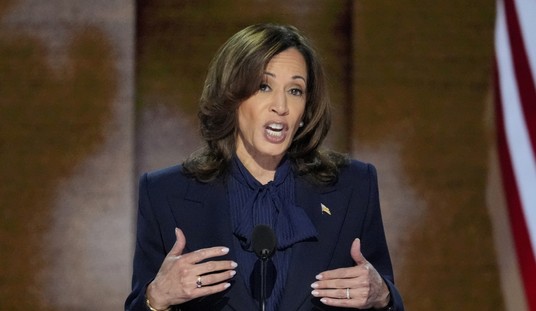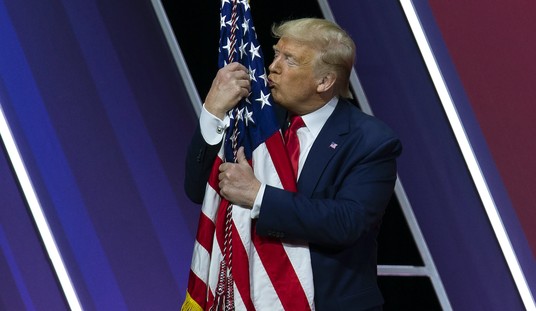
Today Google and Verizon changed the landscape of the Net Neutrality debate in America, by putting out a joint proposal* for FCC Internet regulation. This is a proposal that ideally should be implemented by the Congress, which has the proper authority, and as described I support it. The fact that I’m fine with it of course means, as I predicted, the fringe radicals at Free Press are even more isolated from the mainstream now as they must turn on Google, their former ally.
The proposal has six main points. If read superficially they may sound like capitulation at times, but that’s to be expected when Google needed to save face in the wording of this proposal. In fact, during the conference call today including Google and Verizon CEOs Eric Schmidt and Ivan Seidenberg, Schmidt’s constantly precise and labored wording was reminiscent of the duckspeak of a Stalin-era CPSU member desperately hoping to avoid the purge by speaking hyper-correctly according to the party line. And it is the purge from the ranks of the not-Evil by the Communists at Free Press and their allies that Schmidt seems to fear.
Seidenberg, meanwhile, was calm, matter-of-fact, and in command of the facts. He did at times make a point to watch his language, but it was clear to me it was not his priority, and if I recall he had to go back and correct himself on at least one occasion. The need to look good here lies with Google, not with Verizon.
But that said, this is a good proposal, and I commend Google for seeing the light on this, after spending so many months (since well before the FCC’s own conferences began) in secret with Verizon working on this.
Point one of the proposal (which is not fully fleshed out in specific legislative or regulatory language yet) is to end the legal uncertainty around the FCC’s role on the Internet. While the Comcast case was rightly decided, the FCC’s response to that defeat has left ISPs uncertain about the future. Certainty is good for investment in Internet infrastructure, and that investment is good for everyone. The proposal delegates the FCC clear and narrowly tailored powers. I support this as a reasonable compromise.
Point two grants the FCC the authority to force all ISPs not to discriminate in their treatment of lawful, legitimate packets which are desired by and do not harm the public. Spam can be discriminated against because it is illegitimate, not desired, and harms the public. Skype cannot be discriminated against, nor can YouTube. Nor can RedState, in case the Free Press shills decide to come over tonight. Paid prioritization by an ISP of data going to or coming from the “public Internet” – basically, the rest of the Internet not owned by that ISP – is also prohibited.
Exceptions can be granted, but the ISP must be able to make the case that no harm is done, with openness and competitiveness maintained. I can live with this, because of a key point: discrimination is allowed on private networks. More on this later.
Point three imposes transparency, but of a special kind: buyers of Internet service must be made aware of their options and the specifics of the policies implemented by their providers. No more secret restrictions on how you use your Internet connection. ISPs also must make their policies available to content providers online, so that they know how to get around any theoretical hurdles put up, and make their data available to the entire Internet. This is harmless, because it makes ISPs accountable to the market, not to the whims of bureaucrats. This aids innovation and competition, rather than hindering them.
Point four specifies how the FCC should deal with violations of this proposal. How complaints will be addressed, adjudicated, resolved, and punished are all laid out. This is, of course, essential to know once we decide we will give the FCC any authority in this area at all, as this proposal did back in point one.
Point five is one that leaves Free Press and the radicals of the Net Neutrality world writhing, because it creates a clear and protected mechanism for innovation and competition through differentiation of service. It distinguishes between services provided by ISPs. “Traditional Internet broadband access” must be neutral and everything above, but value-added or other services do not, if they are operating on private networks rather than the “public Internet” at large.
The obvious example given of this kind of service, given the authors of this proposal, is Verizon’s FiOS service. I think an easier to understand comparison though is AOL. AOL, back when it was the market leader, was a hybrid service. It gave a form of Internet access, but nobody was under the impression it was ordinary Internet access, because it was AOL, and AOL was AOL with its own add-ons and limitations.
The Verizon/Google proposal allows ISPs broad latitude in how they innovate and manage new services, as long as those ISPs still offer traditional (and Net Neutral) high-speed Internet access, and make sure that the traditional service is clearly distinguished as separate from any other service options they may have. Nothing would stop, in the example reporters gave today but Eric Schmidt forcefully denounced, Verizon from paying to run wires to YouTube and letting customers pay for high-speed, prioritized YouTube upload and download performance. This is just the kind of innovation I’ve been harping about for ages, the kind of pay-for-service we all need but the neo-Marxists at Free Press oppose, and the Google/Verizon proposal allows it. Google has moved on from radical notions of a forced, equal lowest common denominator of service for all.
The radicals will say that private, parallel networks will harm us all, but that’s a disproven theory. There already has been already implemented a private, high-speed network constructed in parallel with the Internet, with priority given to select paying entities. That network is called Internet2. Nobody outside of Internet2 was harmed by it, but those on the network and investing in it were able to benefit from its prioritized bandwidth potential, which was realized as a number of data download speed records were set.
Point six will cause some shrieks as well but also makes sense to me. It distinguishes between wired Internet access (which is usually in a anti-competitive environment with ample bandwidth and a clearly defined gradient on the network from edge to core) and wireless Internet access (in a highly-competitive market with more limited bandwidth and a more difficult-to-manage network structure). Wired Internet access will be subject to all of these rules, but Wireless Internet access will only be subject to transparency. Wireless ISPs can discriminate, but they have to tell you what they’re doing, so if you don’t like it you can go somewhere else.
The proposal envisions the GAO monitoring wireless Internet access all the same, to see if the competitive market will continue to provide “robust” Internet options to its customer base. Which of course it will, as long as that light touch of regulation is maintained, as the Telecommunications Act itself envisioned.
And that last thought is a key: this proposal would leave previous law largely intact, and would reject Title II Reclassification as proposed by the FCC. Information services would remain information services under the law. The FCC would be kept in check.
Lastly, point seven is one I have serious problems with, as it seems to support an Internet tax in the guise of “Federal Universal Service Fund reform,” as part of a National Broadband Plan. But 6 of 7 isn’t bad, especially not when Google of all firms has its name on the proposal.
And so, with most of the proposal highly limited in its damaging potential from an expanding FCC, mostly merely codifying the way the Internet is now, but still allowing for future plans which radically change the way Internet access is provided to users, I believe I could support the Congress passing this plan into law. Though again, I hope point seven would be amended out.
* Never call the Verizon/Google Policy Proposal a plan, because Eric Schmidt will cast you into the lake of fire for eternity for feeding into lefty fears that Google is betraying and murdering their hopes.















Join the conversation as a VIP Member